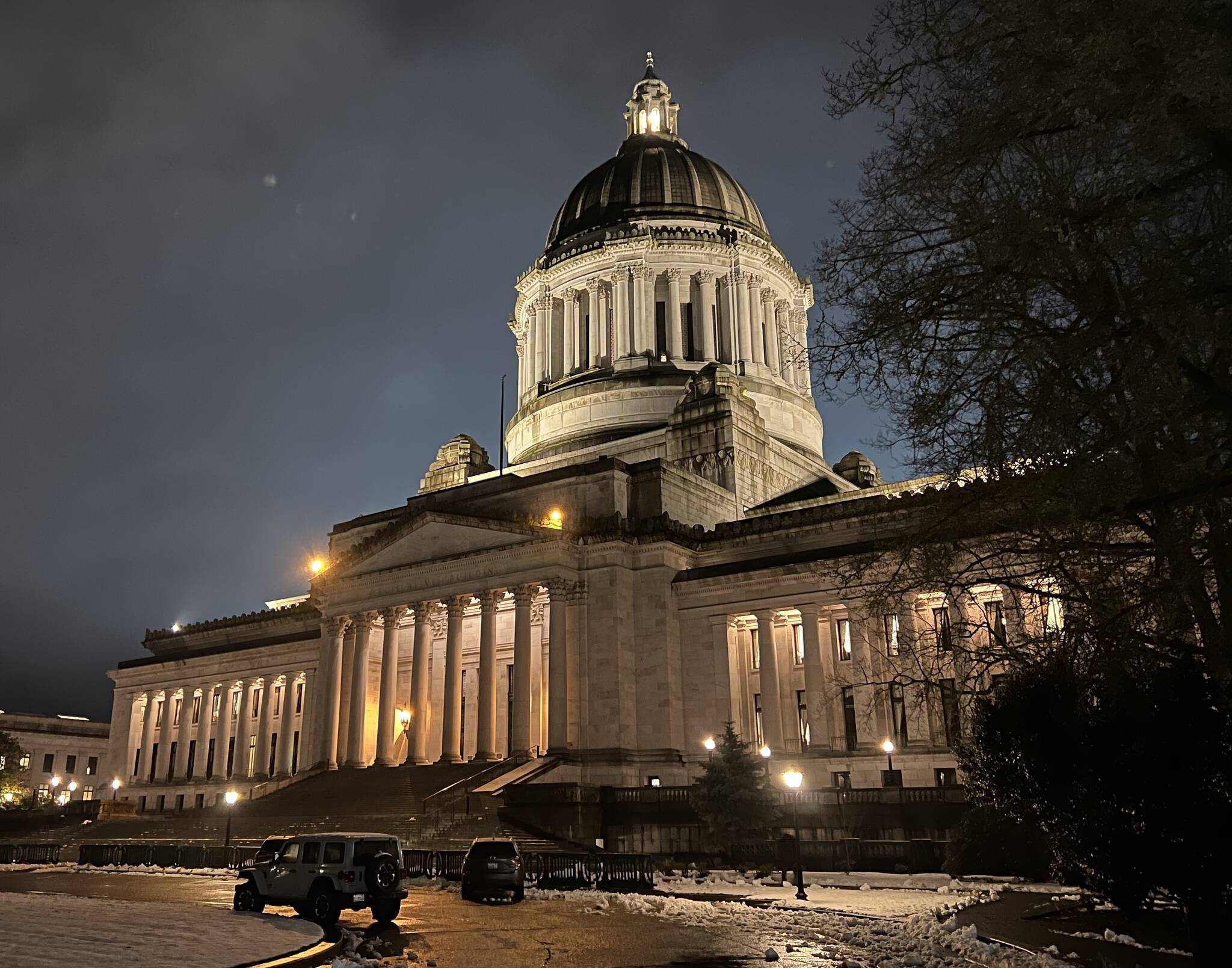With the Washington state Legislature’s abbreviated 2024 session more than halfway complete, Senate leaders released a proposed supplemental capital budget that includes $44.6 million for projects in Grays Harbor County, a higher sum than the vast majority of other counties in the state.
Most of the local appropriations would go to projects of the Quinault Indian Nation: $25 million for a private forest acquisition and $7.8 million for an expansion of the tribe’s behavioral health treatment center, the Quinault Wellness Center, located in Aberdeen.
Behavioral health facilities, K-12 school construction and affordable housing were all focuses of the $1.3 billion capital budget, which senate leaders announced Feb. 15.
“This might only be a supplemental budget year, but this proposal steps up to the scale of the challenges facing Washington. On all the key issues before us, I think this budget will do a lot of good,” Sen. Mark Mullet (D-Issaquah), vice chair of the Senate Ways & Means Committee for the capital budget, said in a press release.
Lawmakers had three major funding sources at their fingertips: the Climate Commitment Act account, the Common School Construction account and debt-limit bonds.
The senate’s budget authorizes $663 million in spending of funds produced by carbon auctions through the Climate Commitment Act, as well as $307 million from the Common School Construction account, fueled by the state’s capital gains tax. With each of those sources at risk of repeal by initiatives introduced to the Legislature earlier this session, the Senate’s budget doesn’t assume continued revenue beyond the end of this year and delays the start of many new programs until January 2025.
Climate Commitment Act funding is responsible for the majority of the Senate’s appropriations to Grays Harbor projects, including the $25 million that would help the Quinault Indian Nation, in partnership with The Nature Conservancy, purchase 11,000 acres of private forest lands on the reservation and return them to tribal stewardship.
The lands, owned by the Anderson and Middleton company, fell into private ownership because of the 1887 General Allotment Act, or the Dawes Act, which divided the Quinault Indian Reservation into a “checkerboard” of land available for purchase.
“This will greatly help us to purchase the last remaining large private timberland owner on the reservation who has contacted us and is willing to sell,” said Gina James, a member of Tribal Council, during a Feb. 15 testimony before the Senate’s Ways and Means Committee. “We are excited and overjoyed to see this in your budget. This means a lot to us. We have been fighting to regain our reservation since we became more self-determined and self-governed since the 70s.”
On the purchased lands, the tribe plans to reduce commercial timber harvest in sensitive areas, instead prioritizing conservation, habitat restoration and management for traditional uses. It’s estimated the project will result in an additional 3 million tons of carbon sequestration over the next 20 years — the equivalent to emissions of 33,000 cars.
“This has a huge impact on helping make the reservation whole again,” Skippy Shaw, a state lobbyist with The Nature Conservancy, said during Feb. 15 testimony before the Senate committee. “It’s also about tribal leadership and reforestation of forest lands, climate solutions and cultural revival. We see this as a powerful example of how to use the Natural Climate Solutions account.”
Senate lawmakers also allocated funds generated from the state’s landmark climate bill for city of Hoquiam to make a 400-acre land purchase that would expand recreation and allow the city to generate revenue from timber harvest. If the senate’s budget holds, Hoquiam would receive $2.5 million through the state’s community forest program.
“It’s going to be an awesome addition to our recreational goals,” said Brian Shay, city administrator for Hoquiam.
The supplemental budget allocates almost $20 million for salmon restoration projects, including a pair of $2 million grants for Grays Harbor efforts: culvert repairs to allow fish in Damon Creek near the Humptulips River to pass under Kirkpatrick Road, and a restoration project at the headwaters of Schafer Creek, which drains into the West Fork Satsop River from the mountains east of Wynoochee Lake.
Mara Zimmerman, executive director of the Aberdeen-based Coast Salmon Partnership, said the group selected a handful of projects, including those two, as priorities along Washington’s outer coast.
While much of the Senate’s allocation in Grays Harbor related to natural resources, local schools and behavioral health projects were also included in the suggestions.
The Quinault Wellness Center was one of six tribal behavioral health facilities to receive allocations. The treatment facility in Aberdeen, which serves tribal and non-tribal members, could receive $7.8 million for an expansion project that involves the purchase of a nearby office building for administration to create more treatment capacity.
Since opening its doors in the fall of 2022, the center has reached capacity at 250 individuals, according to tribal council member James, who also testified last week about the project. Of those patients, James said, one-fifth are American Indian or Alaska Native, while the rest are non-tribal.
“We want to thank you for this investment in our community and the Harbor,” James said.
North Beach School District was included in the Senate’s budget with a $5.2 million construction grant through the Small District and Tribal Compact Schools Modernization program, which supplies grants to districts with under 1,000 students.
According to a press release, the Senate’s budget includes $121 million statewide for school construction funding and covers the cost of sales tax on school construction.
The proposed budget also includes more than $100 million allocated for housing. Though no housing projects are specific to Grays Harbor, the Raymond Manor could receive $1.5 million for low-income senior housing.
Contact reporter Clayton Franke at 406-552-3917 or clayton.franke@thedailyworld.com.


